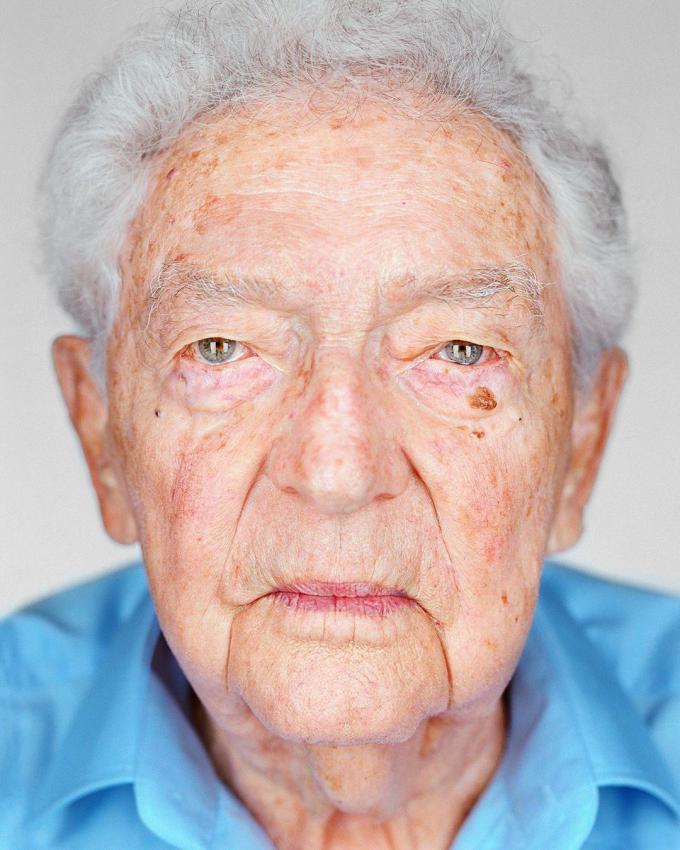06 May 2021
Yad Vashem mourns the passing of Dr. Yitzhak Arad, Holocaust survivor and resistance fighter, renowned historian and former Chairman of the Yad Vashem Directorate and Vice-Chairman of the Yad Vashem Council.
Dr. Arad was born Yitzhak Rudnicki in Święciany, Poland (now Svencionys, Lithuania) in November 1926. In his youth, he belonged to a Zionist youth movement and was educated in Hebrew schools. At the outbreak of WWII, he lived with his family in Warsaw. After three months of German occupation of the city, he fled with his sister back to Święciany. His parents were murdered during the Shoah. During the war, he managed to escape a murderous German aktion and sneak back into the town ghetto, where he was put to work in a munitions warehouse. He began to smuggle weaponry and help form a ghetto underground movement. In February 1943, at the age of sixteen, he escaped to the nearby forest, where he joined the Soviet partisans. Apart from a foray infiltrating the Vilna ghetto in April of that year to meet with underground leader Abba Kovner, Yitzhak stayed with the partisans until the end of the war, fighting the Germans and their collaborators in the Narocz Forest of Belarus and in eastern Lithuania, for which he received the highest partisan award.
In December 1945, Dr. Arad immigrated to Eretz Israel on the illegal immigrant ship Hannah Szenes. He served in the Israel Defense Forces, most of the time in the armored brigade. His last appointment was IDF Chief Education Officer; he retired in 1972 as Brigadier General. In his academic career, Arad lectured on Jewish History at Tel Aviv University and was a guest professor at Yeshiva University, New York.
Dr. Arad served as the Chairman of the Directorate of Yad Vashem for 21 years (1972-1993), and he remained associated with Yad Vashem until his last days, serving as Deputy Chairman of the Yad Vashem Council. He researched WWII and the Holocaust, and was published extensively as an author and editor, primarily in Hebrew, English and Russian. In 2004, he was awarded Yad Vashem’s annual Buchman Memorial Prize for his book, The History of the Holocaust: Soviet Union and the Annexed Territories. In 2009, Nebraska University Press and Yad Vashem published Arad's The Holocaust in the Soviet Union, a book that earned the Jewish Book Council's National Jewish Book Award. In recent years, Arad published several important works reflecting updated research and documentation about the Holocaust. In 2010 he published In the Shadow of the Red Banner: Soviet Jews in the War Against Nazi Germany and a revised and expanded work entitled The Operation Reinhard Camps: Belzec, Sobibor, Treblinka published by Yad Vashem and Indianan University Press in 2018. Most of the books published in English were also published in Hebrew.
In 2020, Arad participated in a joint commemorative photography project between Yad Vashem and world-renowned photographer Martin Schoeller, entitled Survivors: Faces of Life after the Holocaust. As part of this project, Dr. Arad stated:
"What happened in the past could potentially happen again, to any people, at any time. Be very clear about this: Do not count yourselves among the murderers, and may you never find yourselves among the victims."
Rabbi Israel Meir Lau, Chairman of the Yad Vashem Council:
"A noble and honest man has left us, a Jewish partisan hailing from the Warsaw ghetto who headed Yad Vashem for 21 years. In this context, he worked diligently to commemorate the Holocaust and established the Valley of the Communities. Only last month, we met at the IDF General Staff forum held at Yad Vashem for Holocaust Remembrance Day, where he delivered a lecture. I had the great pleasure of seeing a 95-year-old Jew speak fluently, with a clear mind. It is sad that such figures are leaving the world."
Former Yad Vashem Chairman Avner Shalev:
"Yitzhak (Tolka) Arad reflected many historical aspects the Jewish people endured: a life that began in Poland; fighting with the partisans during the Holocaust; and then immigrating to Eretz Israel, where he fought in the War of Independence. Through his work at Yad Vashem and his words, Tolka personified the force of life and power of memory, which was also reflected in his private life and the fate of his people. The way he behaved, and the person he was, are an example of the generation that believed – and continues to believe – in the development of the State of Israel and its influence. Today, I lost a close friend, a person who taught me so much and with whom I wove many dreams."
Ronen Plot, Acting Chairman of the Yad Vashem Directorate:
"We know that it is the nature of the world that a day comes and a person leaves us, but this fact does not ease the sadness when a hero like Yitzhak (Tolka) Arad departs. Arad belongs to a vanishing generation, a generation of survivors, partisans, IDF fighters, memorial fighters. Every farewell to a Holocaust survivor is a reminder to us that now the work of remembrance rests on our shoulders even more."
Yad Vashem extends its deepest condolences to his children, grandchildren and great-grandchildren. May his memory be blessed.







